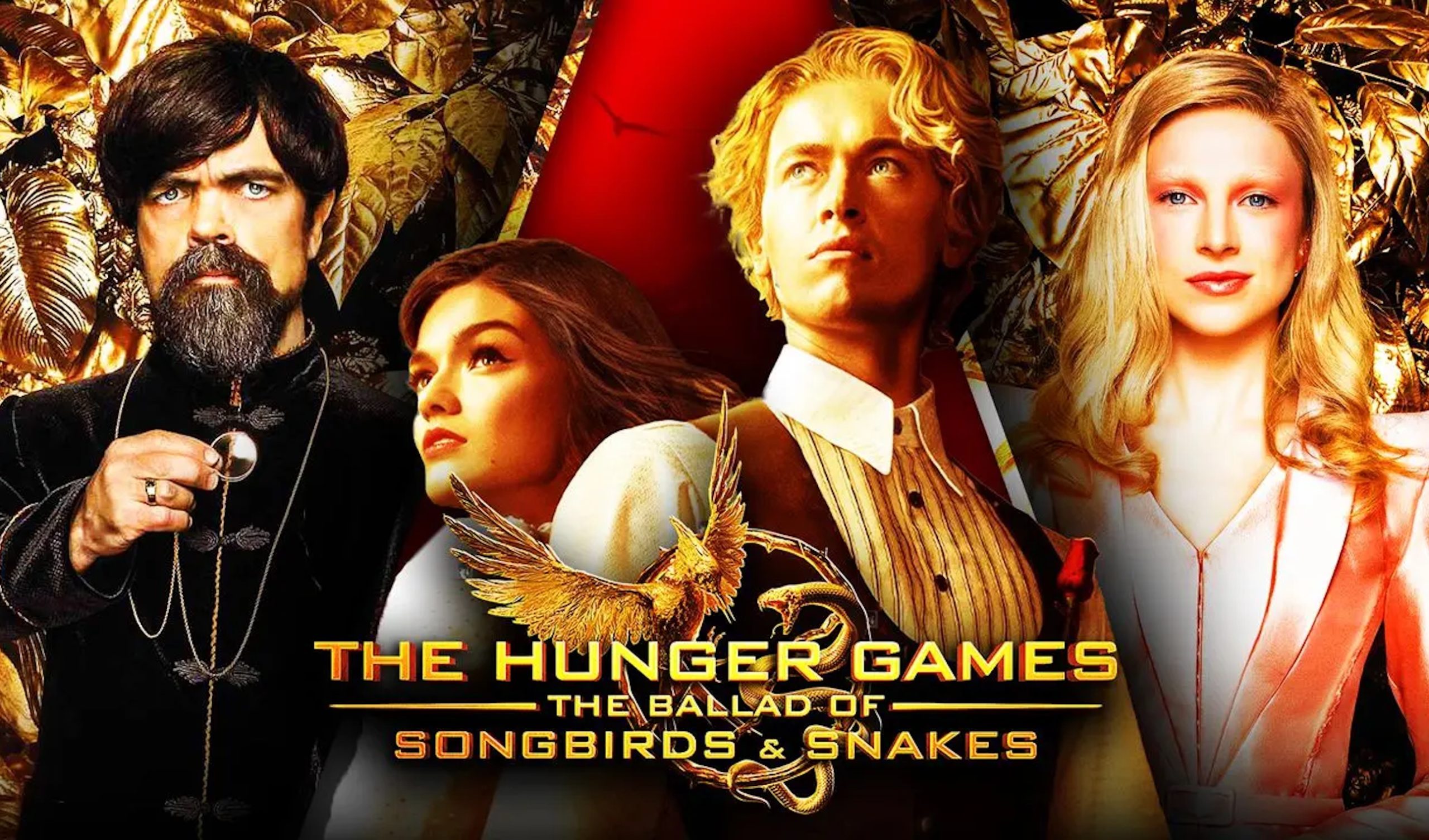Starring Tom Blyth, Rachel Zegler, and Viola Davis
Distributed by Lionsgate Films
Running time: 158 minutes
Rated PG-13 for strong violent content and disturbing material.
Author’s note: This review contains spoilers.
Villain origin stories have been popular in recent years. From Maleficent (2014) to The Joker (2019) to Cruella (2021), many films have shown the tragic beginnings of evil characters, exploring why they chose the paths they did. The Ballad of Songbirds and Snakes somewhat falls in this category but splits its focus between Coriolanus Snow (Tom Blyth), the dictatorial president of The Hunger Games series, and a new character: Lucy Gray Baird (Rachel Zegler).
The movie is an adaptation of the eponymous book by Hunger Games author Suzanne Collins in which the main characters represent different political philosophies. The conclusion the book draws about those philosophies grounds and supports the anti-authoritarianism of Collins’s original trilogy. Unfortunately, much of that message is lost in the film adaptation.
The franchise is set in Panem, a fictional nation dealing with the aftermath of a civil war between the districts (where most of the industry takes place) and the Capitol, which is populated by the country’s rich and powerful. The conflict, which took place ten years before Songbirds and Snakes, shook the sense of safety, stability, and abundance that Capitol citizens such as the young Coriolanus took for granted. His father was killed, and many went hungry; some even resorted to cannibalism. But the Capitol won the war, and its leaders devised a twisted plan to ensure that the districts would never rebel again: Every year, twenty-four “tributes” (one boy and one girl from each district) are forced to fight to the death in the Hunger Games until only one survives. The “Games” are televised to intimidate potential rebels and entertain Capitol citizens.
But the plan isn’t working. Most people aren’t watching; of those who do, many are uncomfortable with, or outright disgusted by, what they see. By the time Coriolanus is finishing high school, the Capitol officials are desperately strategizing to get people to tune in for the tenth Hunger Games. As part of these efforts, a mentorship program is devised: Senior students will coach the tributes, present them to the Capitol, and try to invest people in them. Coriolanus is assigned to mentor tribute Lucy Gray Baird, a singer from a band of traveling musicians called the Covey, who were confined to District 12 after the war. Lucy Gray’s folksy, wistful singing—brought to life by Zegler’s powerful, haunting voice—along with her grace, courage, and innocent beauty endear her to Capitol audiences.1 The movie plays up these positive aspects, creating a character approaching a heroine—and distracting from the purpose of Collins’s story. . . .
Click To Tweet
You might also like
1. Sarah El-Mahmoud, “Is Rachel Zegler Really Singing in the Ballad of Songbirds and Snakes? The Hunger Games Actress’ ‘Choice’ Explained,” Yahoo Finance, November 18, 2023, https://uk.finance.yahoo.com/news/rachel-zegler-really-singing-ballad-171201195.html.
2. Her first kill is off target: a child (Dill), already ill, who swallows poison meant for the alliance hunting her. If it had found its target, she would only have killed those actively seeking to kill her.
3. “The Hunger Games: Catching Fire (2013)—Woody Harrelson as Haymtich Abernathy,” IMDB, accessed November 20, 2023, https://www.imdb.com/title/tt1951264/characters/nm0000437.
4. Suzanne Collins, The Ballad of Songbirds and Snakes (New York: Scholastic, 2020), 437–38.
5. Thomas Hobbes, Leviathan: Or, the Matter, Forme, and Power of a Common-Wealth Ecclesiasticall and Civill (Oxford: Thornton, 1881), 63.
6. Collins, Ballad of Songbirds and Snakes, 185.
















